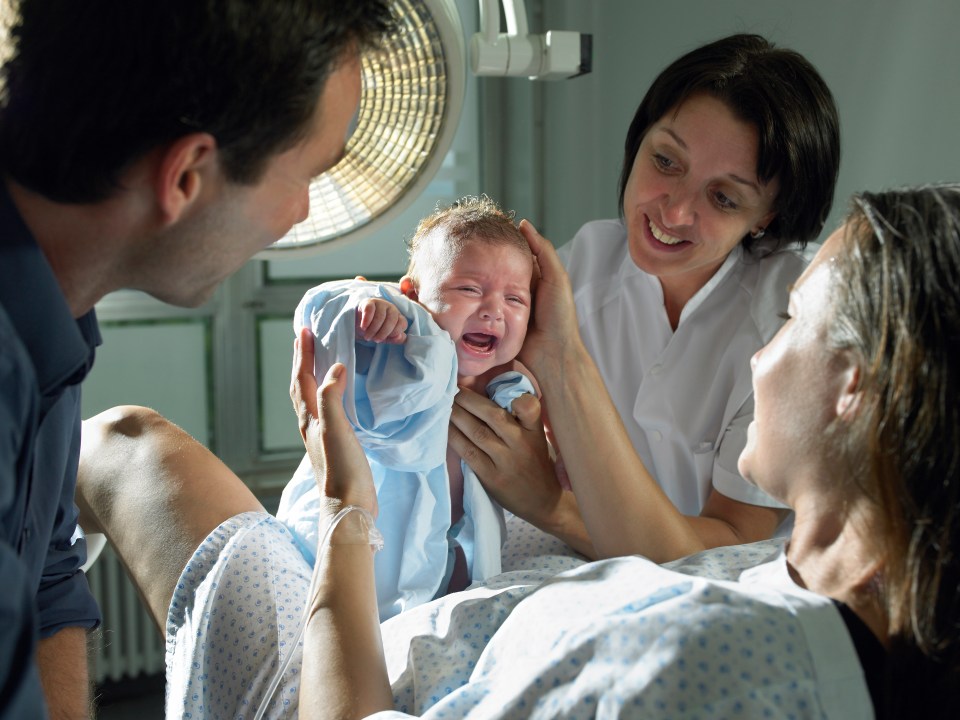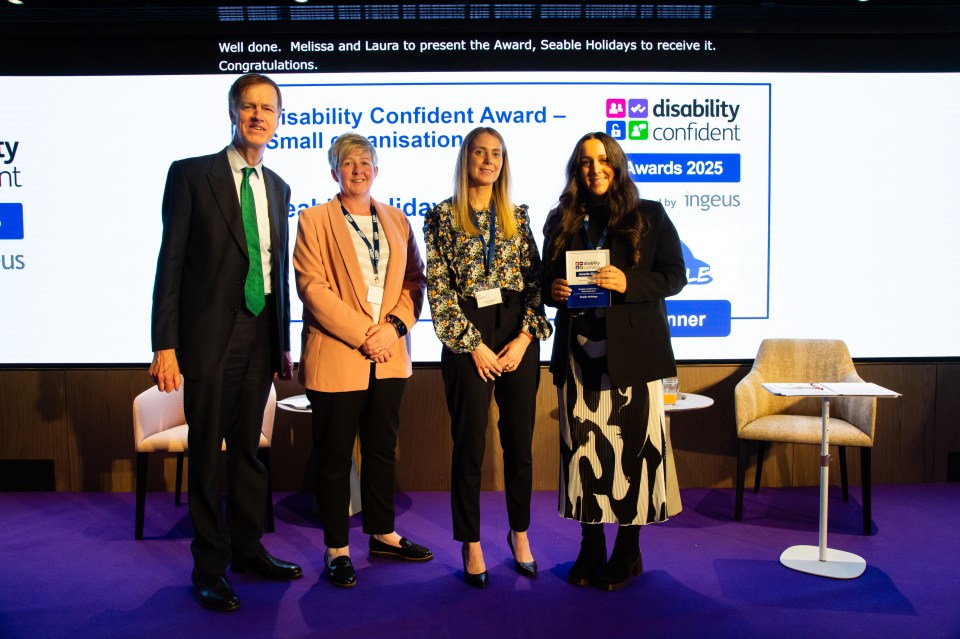THE UK’S birth rate may be falling, but demand for midwives remains at record levels.
The Royal College of Midwives has warned of a shortfall of at least 2,500 staff nationally and, while the number being recruited by the NHS is rising, a third of the workforce are aged over 50, with many set to retire in the next few years.
Monday is the International Day of the Midwife, a global celebration of the vital part played by maternity service employees.
And the NHS is calling on people interested in changing careers to consider the rewarding role.
NHS chief midwifery officer Kate Brintworth said: “Midwives share the most special moment in a parent’s life — the birth of a child.
“It is a demanding but entirely unique job, offering the privilege of ensuring women have the best birth experiences possible.”
In the UK, many women choose to become midwives after the birth of their own child, retraining and upskilling from other roles.
Alongside this, there are around 200 male midwives nationally — 0.5 per cent of the workforce.
Some of them have also been motivated to switch career after becoming a parent.
Kayty Richards used to work in football hospitality sales but, following the birth of her children, she decided to retrain as a midwife by taking a degree at the University of Derby.
Very rewarding
The 39-year-old, from Rotherham, says: “After having my children, I felt drawn to maternity services as I had found the experience very positive and empowering.
“However, not all my friends had the same experience and I realised how having the right care was vital.
“I started volunteering and then worked for a charity which supported women through pregnancy, and felt inspired to pursue a career as a midwife. Being there to witness people becoming parents, or seeing the joy as someone’s family grows, truly is a privilege.
“It is a very rewarding career and you will experience magical moments you won’t ever forget.”
After having my children, I felt drawn to maternity services as I had found the experience very positive and empowering
Midwife Kayty
Currently, there are three routes into midwifery.
The most common is a midwifery degree, which usually takes three years, split across academic and clinical education.
Entry is competitive and each university sets its own criteria, so back up your application with some experience of health or social care, even if this is on a voluntary basis.
Secondly, if you work as a registered adult nurse, you can then embark on a shortened, 18-month course to qualify quicker.
Finally, if you are a midwifery support worker in England, you can opt to study a specialist degree apprenticeship programme.
Offering the same qualification as a degree, apprentices earn as they learn.
Wages for a midwife are reasonable, with starting pay coming in at around £28,407. Experienced midwives can earn up to £60,000.
The most senior consultant midwives, who act as clinical experts, can sees salaries of up to £84,000.
Becoming a midwife was the best decision I ever made. It’s the most rewarding profession in the word
Kate Brintworth
So what are the downsides? Being a midwife is one of the world’s highest-pressure jobs, as you quite literally hold a life in your hands.
You’ll need to be able to work long and often irregular hours and may face complicated issues with patients. For some, the job is emotionally draining.
However, qualified midwives have a number of career options, including management roles, moving into a clinical specialist position, becoming a health visitor or transferring to education and research.
Kate Brintworth says: “Becoming a midwife was the best decision I ever made. It’s the most rewarding profession in the word.”
For more information, see healthcareers.nhs.uk.
Focusing on staff safety
THIS week, we marked World Day For Safety And Health At Work – but how well does your workplace protect you?
Gavin Scarr Hall, director of health and safety at HR specialists Peninsula, says: “Health and safety is not just the responsibility of a select few – it affects all of us.”
Here, he shares employers’ top five mistakes.
NOT DISPLAYING THE HEALTH & SAFETY LAW POSTER: It lists the responsibilities for both employees and employers.
If you employ anyone, the law states that you must display this poster where employees can easily read it, or provide the equivalent health and safety law leaflet.
So get it out the drawer and on the wall.
NOT SHARING RISK ASSESSMENTS: Employers may think that completing a risk assessment is enough, but failure to share the results or involve workers in the process is a problem.
Employees often understand the processes and day-to-day risks in greater detail than managers, so it’s key to engage them when completing the risk assessment and developing control measures.
NOT PROVIDING HEALTH & SAFETY TRAINING: Legislation requires employers to provide adequate information, instruction and training to enable employees, contractors and site visitors to carry out their job without risk.
Training should be tailored and take into account any learning or language barriers.
POOR OR NO HOUSEKEEPING STANDARDS: By law, premises and facilities must be clean and maintained to acceptable standards.
Employers must have provisions in place, including maintenance and cleaning schedules.
Employees should play a part.
IGNORING MENTAL HEALTH OR WORK-RELATED STRESS: Mental health is now the leading cause of workplace absence, with over half a million UK employees currently suffering from work-related stress.
Employers need a policy outlining their commitment to – and arrangements for – preventing it.
Keep your cool
THIS week’s mini heatwave has seen temperatures hit 27C, but what does that mean for your workplace?
John Kushnick, from personal injury lawyers National Accident Helpline, said: “Employers have a duty to maintain safe, reasonable working conditions.
“Dress codes should be relaxed to allow cooler clothing, such as shorts, lightweight tops and, where appropriate, open-toed footwear.
“In the office, temperature and airflow should be managed effectively. Workplace temperatures should be monitored regularly.
“If conditions become unsafe, work may need to be suspended – though with the current forecast, risks can be managed with the right precautions.”
Job spot
PIZZA chain Franco Manca is hiring for junior and senior pizza chefs plus kitchen porters.
Find your role at francomanca.co.uk/careers
Win for disabled
UK firms that have excelled in hiring and supporting disabled employees were honoured at the annual Disability Confident Awards in London this week.
The small organisation gong went to travel agent Seable, which provides holidays for visually impaired people.
The firm hires blind and partially sighted staff so that getaways reflect customers’ needs.
The Gym Group won the award for big organisations with over 250 staff.
It runs an inclusive traineeship that enables disabled people to break into the fitness industry.
Disability Minister Sir Stephen Timms said: “It has been great to see so many organisations leading by example to support disabled employees in the workplace.”
Job spot
SPORTS DIRECT has vacancies for part-time and temporary store staff.
Find out more at frasers.group/careers/jobs















